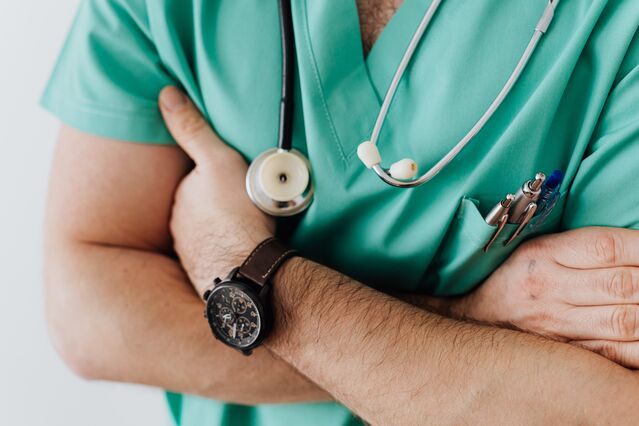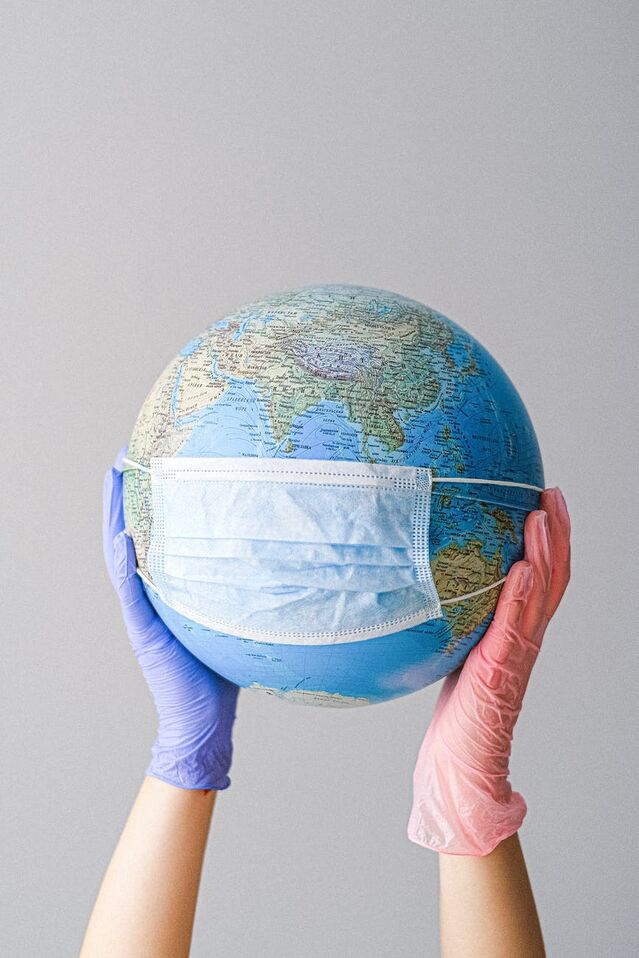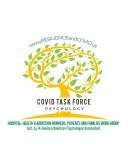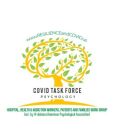Trauma
When Working with Cancer Patients Is Traumatic
Self-care to better aide patient care.
Posted September 14, 2021 Reviewed by Devon Frye
Key points
- Mental health distress such as burnout, depression, and anxiety are common among doctors, especially oncology providers.
- The COVID-19 pandemic may have overburdened an already distressed population of healthcare workers.
- Oncology providers' wellbeing is critical to their ability to provide quality and compassionate care.
This post was written by Soffía Pálsdóttir, Psy.D., a Member of the Medical and Addictions working group of the COVID-19 Psychology Task Force (est. by 14 divisions of the American Psychological Association), which sponsors this blog.
The backbone of a physician is resiliency. Although resiliency can help one rebound from adversity, it does not provide immunity from emotional and psychological distress. Physicians experience high rates of burnout, compassion fatigue, depression, and anxiety (McFarland et al., 2019). Tragically, physicians also have among the highest rates of suicide of any profession, with approximately one physician committing suicide every day (Petersen et al., 2016).
Oncology providers may be particularly vulnerable to psychological distress and burnout, considering their daily exposure to cancer's harsh physical and emotional toll. Supporting cancer patients and their loved ones through their most challenging times is an honor and increases purpose and meaning. Observing patients' return to health is motivating and highly rewarding—conversely, the associated suffering, death, and loss cause distress.
Advances in cancer care create long-term relationships with patients and families, often lasting many years, making the grief and loss more intensely felt. Oncology providers may thus be particularly vulnerable to burnout, unresolved grief, and other psychological distress. Attending to providers' mental and emotional health cannot be overemphasized in a world that often expects doctors to be stoic and showing little emotion seen as a virtue.

The Challenges of Treating Cancer During COVID-19
In the spring of 2020, the world braced for impact as the COVID-19 pandemic reared its ugly head with a quick realization that healthcare systems would face unprecedented stress and challenges. COVID-19 has left no stone unturned, and cancer centers worldwide faced changes to care delivery with the primary goal of protecting vulnerable patients and continuing to provide life-saving services. This inevitable change had significant implications for cancer patients and the medical team caring for them and has elicited increased stress and uncertainty—the impact of which may be felt for years to come.
Oncology providers experienced the perfect storm for anxiety, fear, and despair during COVID-19, not only from their patients' perspective but also from their own and that of their colleagues. Distortions in their usual work environment and continuous attempts at finding a balance between providing ongoing care and mitigating the risk of COVID-19 took an emotional toll. As patients attended appointments alone due to visitor restrictions, the doctor and medical team were at times the only people patients saw outside of their home, adding a level of stress to providers now serving in a dual role of providing medical care and a form of emotional support.
Research is starting to emerge that shows an increased prevalence of distress, anxiety, and depression among oncologists related to COVID-19 (Thomaler et al., 2020). Such findings support the need to address oncology providers' psychological and emotional needs, which the COVID-19 pandemic may have negatively impacted.
Is There an Upside?
Every cloud has a silver lining, and the pandemic brings to light elements that may offer support to mitigate mental distress. A worldwide pandemic creates shared experiences and increased relatability between patients and doctors. Doctors and patients alike face similar threats and anxieties: a universal sense of uncertainty and lack of control, limited social interactions, and the need to find ways to navigate changed reality. Consequently, mutuality, compassion, and enhanced alliance between provider and patients may increase.
Providers' physical and mental wellbeing are the driving forces for quality and compassionate patient care. It is high time to create a paradigm shift where oncology providers' self-care resembles patient care. Prioritizing and committing to regular self-care guards against burnout and psychological distress. Spending time with loved ones, healthy nutrition, sleep hygiene, physical exercise, and avoiding excessive alcohol or substance use cultivates wellbeing.

What Else Can Be Done?
Here are some additional ways to foster mental reserve and ward off stress and burnout during the current challenging times:
- Permit yourself to have feelings. You may be having emotions and reactions that are unfamiliar and uncomfortable. Suffering is a normal part of life, a response to a problematic situation. It is more disturbing to make constant attempts to deny our feeling and sufferings. It's OK to feel.
- Mindfulness views suffering as an inevitable part of life. Mindfulness can help one cultivate awareness and ways of dealing with the feelings that engender suffering and may be particularly well suited to help oncologists manage feelings that arise as they care for their patients.
- Self-compassion. Talk to yourself as you would to your best friend or yourself as a child.
- Relaxation. A state of profound rest and recharge. Check your breath regularly and practice deep breathing as you gel in before seeing a patient; inhale on 5, hold on 5, exhale on 5, repeat. Regular practice helps you find a sense of calm in challenging situations.
- Gratitude and awe. Gratitude has a positive impact on overall wellbeing and helps increase positive emotions, relish good experiences, deal with adversity and pay attention to the good things in life that often go unnoticed. Commit to a daily reflection of three things you are grateful for. Watch a beautiful sunset or read stories about exceptional human achievements to increase your sense of awe, which can improve immune function and ward off depression and anxiety.
- Spend time with loved ones and engage in social activities. Loneliness is a risk factor to mental and physical health. Reach out to a loved one at least once a week.
- Don't carry the world on your shoulders. Elicit the help and assistance of others when needed
- Pay attention to the good news! Challenges, discouragement, grief, and loss are embedded in cancer care. Humans tend to default on the negative and allow challenging experiences and thoughts to permeate consciousness. Embracing small wins can protect against burnout and compassion fatigue. In the often brutal world of oncology, we need to talk about our challenges and losses. But we see many victories as well. Let's get better at sharing the good news.
- Do what works for you. Strategies that foster wellbeing are not a one-size-fits-all approach, and it's essential to find what works for you during times of distress. Think about what has worked for you in the past and commit to regular engagement.
- Seek professional help when needed. To find a therapist near you, visit the Psychology Today Therapy Directory.
Soffía Pálsdóttir, Psy.D., is a licensed clinical health psychologist at Banner MD Anderson Cancer Center in Phoenix, AZ. She specializes in the field of psycho-oncology where she focuses on assisting cancer patients and their support teams to cope with the wide array of psychological, emotional, social, and physical challenges and symptoms accompanying cancer diagnosis, treatment, and survivorship.
References
Peterson, C., Sussell, A., Li, J., Schumacher, P. K., Yeoman, K., & Stone, D. M. (2020). Suicide rates by industry and occupation – National Violent Death Reporting System, 32 states, 2016. Morbidity and Mortality Weekly Report, 69(3), 57–62.
McFarland, D. C., Hlubocky, F., Susaimanickam, B., O'Hanlon, R., & Riba, M. (2019). Addressing Depression, Burnout, and Suicide in Oncology Physicians. American Society of Clinical Oncology educational book. American Society of Clinical Oncology. Annual Meeting, 39, 590–598. https://doi.org/10.1200/EDBK_239087
Thomaier, L., Teoh, D., Jewett, P., Beckwith, H., Parsons, H., Yuan, J., Blaes, A. H., Lou, E., Hui, J., & Vogel, R. I. (2020). Emotional health concerns of oncology physicians in the United States: fallout during the COVID-19 pandemic. MedRxiv: The preprint server for health sciences. https://doi.org/10.1101/2020.06.11.20128702




